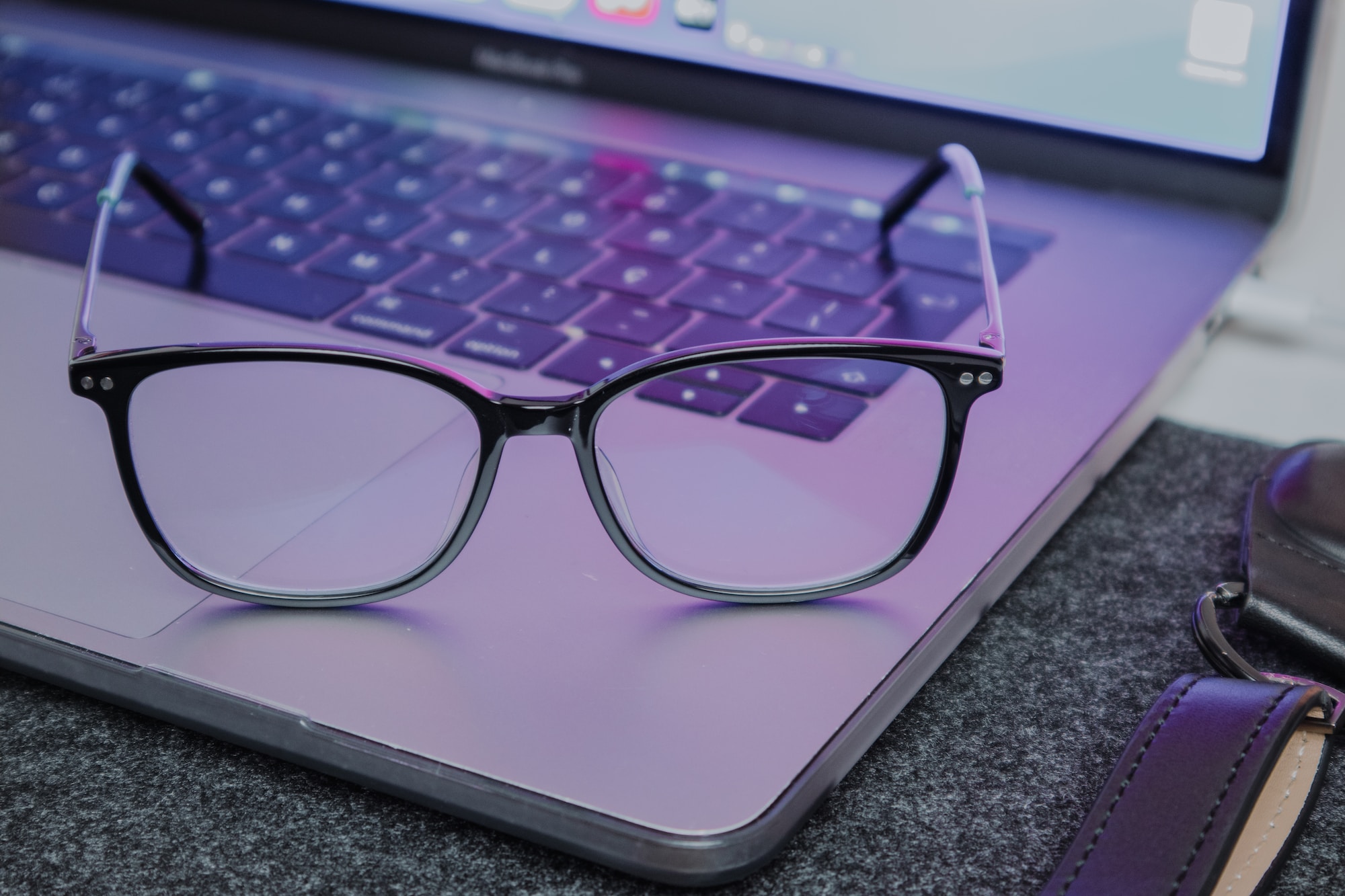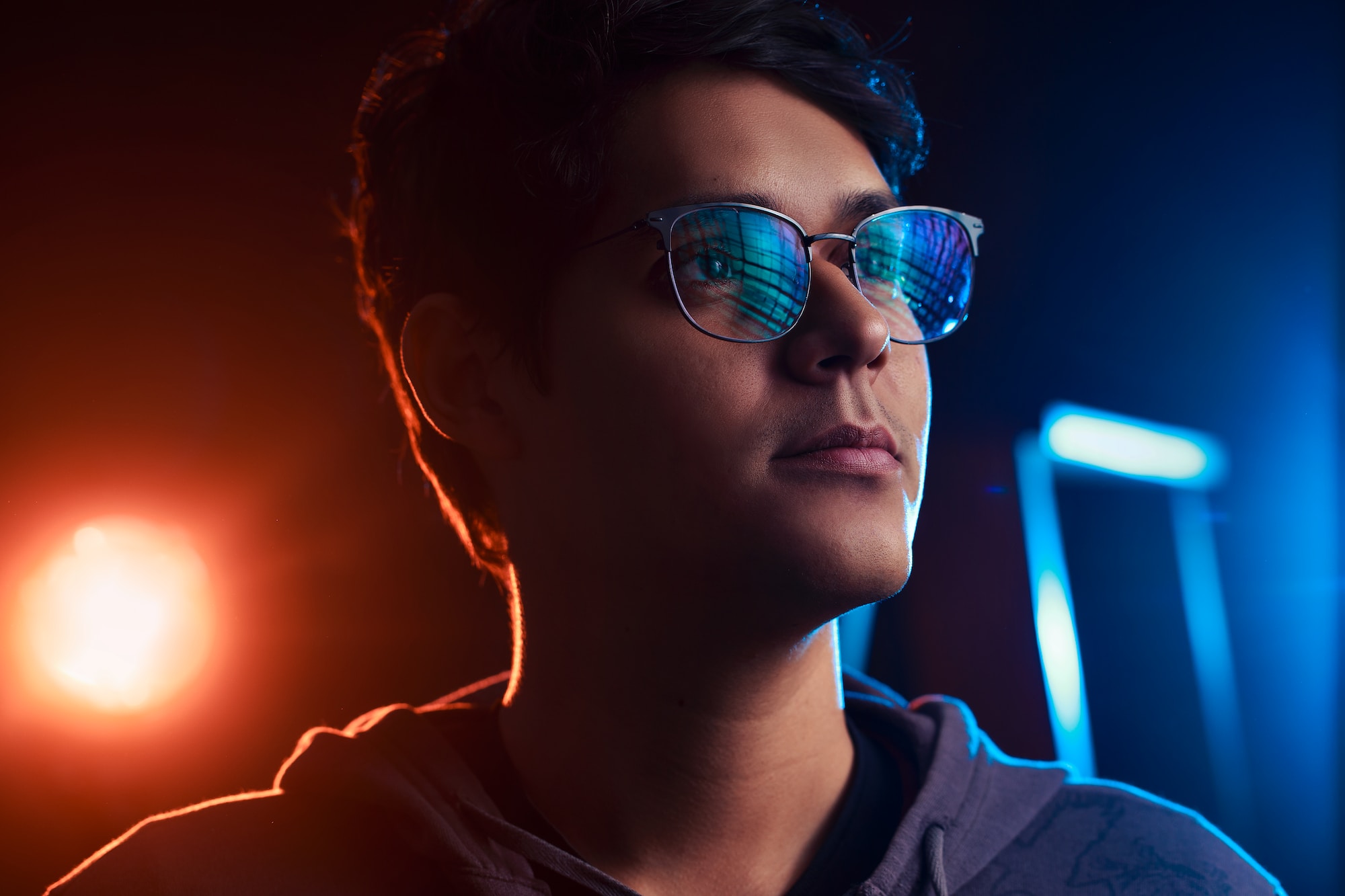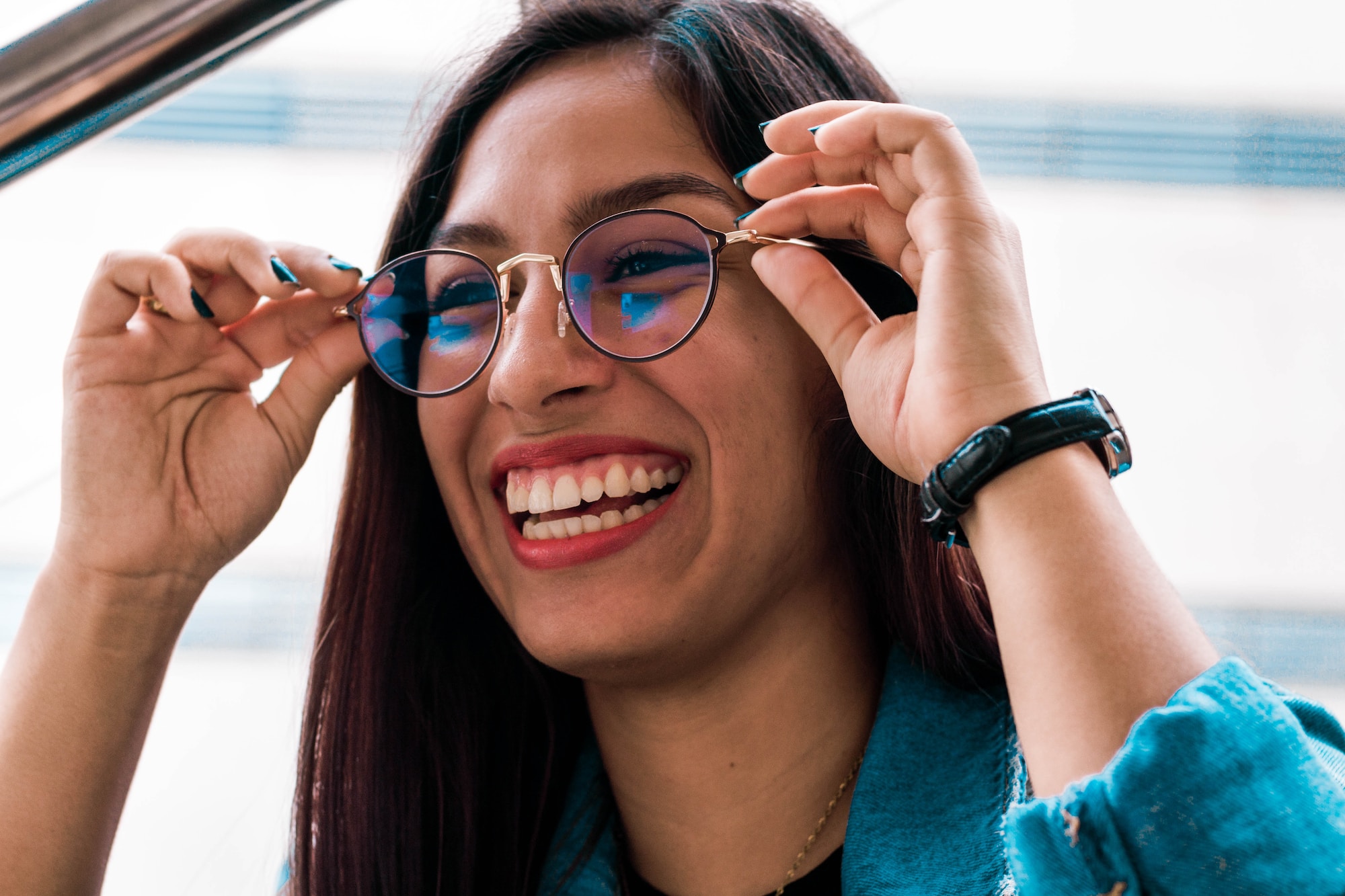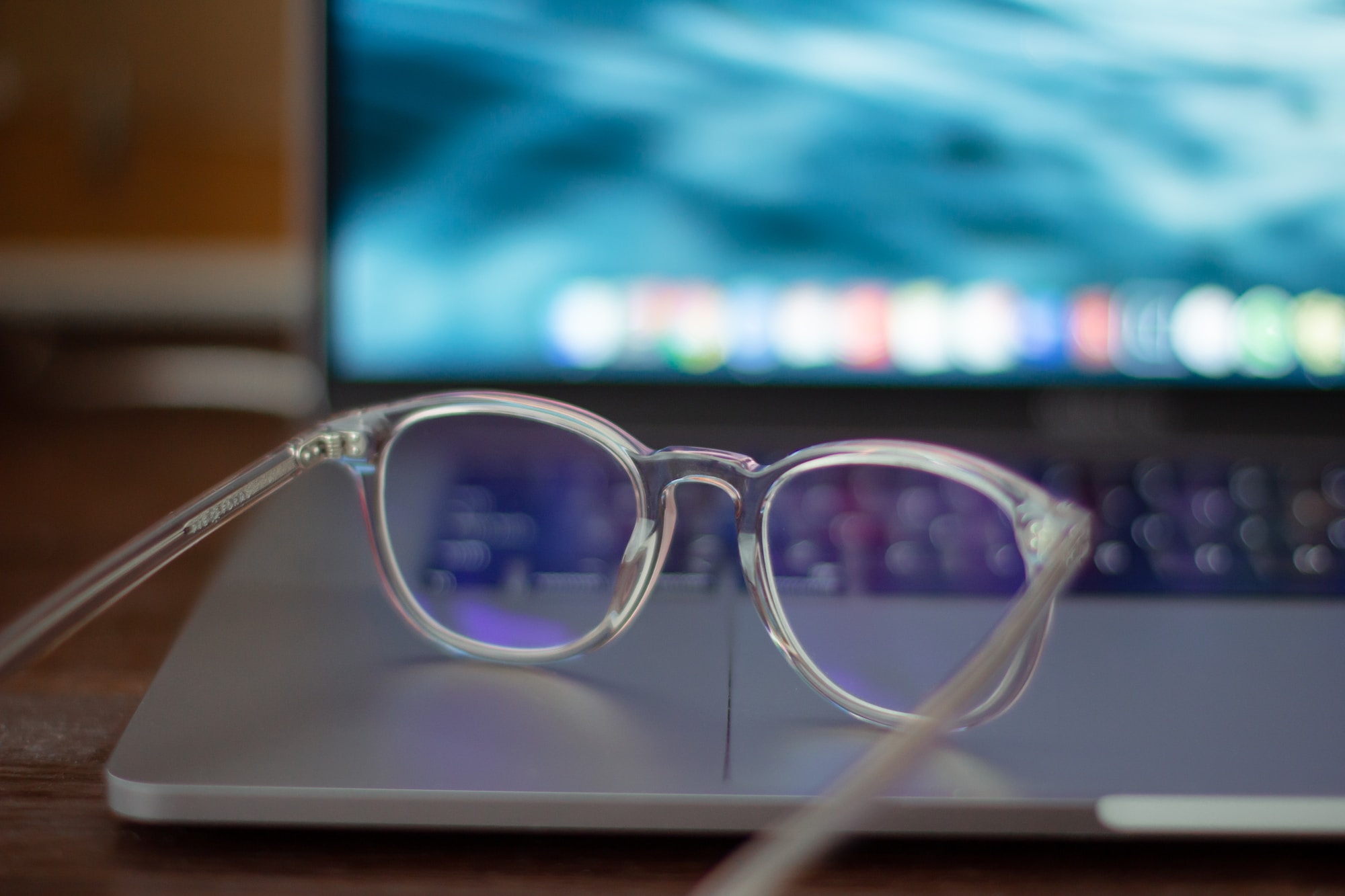When utilized for prolonged periods of time, blue light from screens, particularly those on computers or smartphones, can harm the eyes.
Blue light blockers can help reduce digital eye strain and sleep cycle disruption by preventing too much blue light from entering the eyes.
Over two hours of blue light exposure daily might cause headaches, painful eyes, trouble sleeping, and even cancer.
Headaches, aching eyes, trouble sleeping, and cancer can all be brought on by blue light pollution, which makes it necessary to see blue.
Blue light-blocking eyewear is a potential remedy for digital eye strain, particularly when learning or working remotely.
However, given the health dangers connected with prolonged exposure to digital gadgets, the efficacy of these glasses and their value are currently being assessed.

How Do These Glasses Work?
The human eye can see the red and blue-violet portions of the visible light spectrum, emitting blue or High Energy Visible (HEV) light.
Blue light is mostly produced by sunlight, which has led to the development of protective products like sunscreen and sunglasses.
Digital gadgets like televisions, smartphones, computers, and tablets also produce blue light.
However, it is rare. Concerns concerning the long-term effects of digital gadget use on eye health have been raised due to its frequency and duration.
To fight this, it is important to learn how blue light glasses work.
Blue light-blocking glasses have a surface coating or filtering material on the lenses to partially block blue light before it enters the eye, minimizing potential harm.
Numerous producers contend that blue light-blocking eyewear can successfully alleviate blue light exposure symptoms like headaches, eye strain, and restlessness.
Concerns about the long-term effects of digital gadget use on eye health have also been highlighted due to its frequency and duration.
Benefits Of Using Blue Light Glasses
Given below are some of the most important benefits you can enjoy when using blue light glasses for a long time—
1. Improved Sleep
Blue light controls our circadian rhythm, essential for our sleep cycle. It aids in waking us up and gives us more energy in the morning. It instructs the body to manufacture melatonin for sleep at night.
However, exposure to artificial blue light, such as checking emails or texts before bed, prevents melatonin from being produced, which makes it more difficult to go to sleep and get a restful night’s sleep.
Research suggests avoiding screen time right before night.
Blue light glasses can boost contrast and lessen glare for those who spend much time on computers or driving at night.
Blue light-blocking eyewear partially blocks blue light to prevent circadian rhythm disruption and promote deeper sleep.
In general, blue light is necessary for preserving a sound sleep cycle.

2. Reduced Eye Strain
Blue light-blocking glasses reduce the amount of blue light that keeps you awake by absorbing blue light—including UV light—from the eye.
Digital gadgets are frequently linked to eyestrain, a common ailment caused by tired eyes after prolonged use.
It can result in discomfort, headaches, neck and shoulder pain, increased light sensitivity, and difficulties focusing.
Blue light can harm the light-receiving cells in the retina tissue because the eye’s cornea and lens cannot block it before it reaches the retina completely.
The shorter wavelength of blue light makes it more difficult for the cornea and lens to filter, which results in scattering, decreased contrast, and difficulty focusing.
Blue light filtering eyewear can block off blue light before it reaches the retina, possibly easing the symptoms of digital eye strain in the short term and safeguarding eye health for a long time.
3. Avoid Dryness In The Eyes
Due to its high energy and short wavelength, blue light penetrating the cornea can damage the eyes and cause premature aging.
Dry eyes, digital eye strain, and retinal damage can all result from too much blue light exposure.
People who use computers or other digital devices frequently become hyper-focused, absorbing harmful blue light and developing dry eyes and digital eye strain.
According to an NCBI study, reduced short-wavelength blue light may enhance visual acuity in dry eye sufferers.
By preventing damaging blue light from entering the eyes, blue light glasses can help ease these symptoms.
Optometrists can add updated vision measurements to blue light-blocking eyewear to ensure better vision and stop further side effects.

4. Prevent Retinal Damage
The retina can be harmed by blue light. However, inadequate evidence supports the idea that blue light-absorbing tools, such as blue light glasses, can lower the risk of retinal diseases like AMD.
More research is required to comprehend these technologies’ possible advantages and restrictions fully.
When evaluating the effect of blue light on the retina, one should also consider lifestyle decisions and general eye health.
Blue light emissions from commonplace items are regulated, although they are not high enough to harm the retina, necessitating blue light filtering eyewear usage when using digital screens.
When Should You Wear Blue Light Glasses?
Blue light can interfere with your sleep routine, particularly in the evening or after dusk. By preventing your body’s internal clock from mistaking nighttime for daylight, blue light spectacles can improve the quality of your sleep while lowering eye strain and weariness.
Using blue light-blocking glasses daily can decrease the risk of eye strain, dry eyes, and other problems.
These eyeglasses are helpful for people who spend a lot of time in front of computers, such as office workers or students, as they filter out the damaging blue light released by electronic gadgets, preventing digital eye strain and preserving overall eye health.
Wearing blue light glasses throughout the day can increase comfort and productivity.
However, excessive digital screens can strain the eyes, so taking breaks and performing the 20-20-20 test can help.

What Alternative Precautions Can You Use?
Several ways to reduce digital eye strain include self-care, smart screen usage, and lens maintenance. Taking regular breaks and adhering to the 20-20-20 rule, which enables eyes to focus on various distances, are also examples of self-care.
When working with small text and images on your computer, adjusting your computer settings and increasing magnification to 125%–150% can be helpful.
Additionally, to lessen eye strain, it is recommended to maintain a balance between the brightness and contrast of your screen and to perform eye exercises like eye yoga.
If you use digital screens frequently, you can improve eye comfort by using anti-glare eyewear or varifocal lenses.
These lenses can transition between distances, making them useful for those using digital devices or reading.
They are best for people over 40 with deteriorating eyesight. It’s essential to avoid computer eye strain to keep your eyes healthy.
